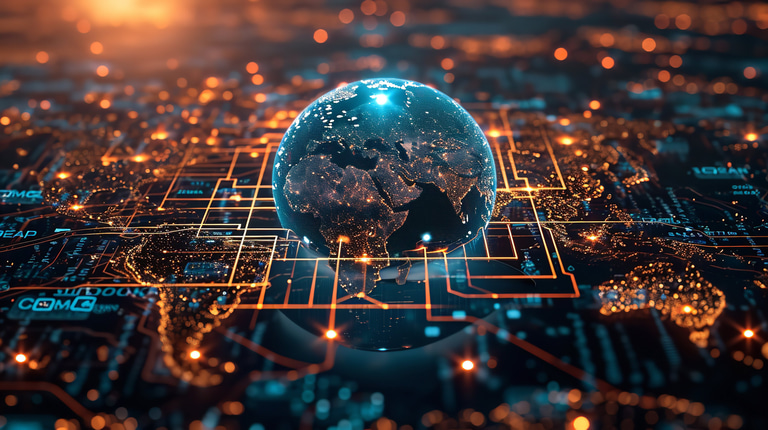The FUTURE of A.I. is immense!
Even though A.I. is all the rage in business, the news and social media, we are still very much in the infant stage of this world-changing phenomenon!
The future of artificial intelligence (AI) holds immense potential and is likely to bring about significant advancements across various domains. While predicting the future is inherently uncertain, here are some key trends and possibilities in the expected future of AI:
Advanced Machine Learning:
Continued advancements in machine learning algorithms will enhance AI capabilities. This includes improvements in natural language processing, image recognition, and other pattern recognition tasks.
Increased Automation:
Automation powered by AI is expected to expand across industries, automating routine tasks and allowing human workers to focus on more complex and creative aspects of their jobs.
Enhanced Personalization:
AI will play a crucial role in delivering personalized experiences in areas like healthcare, education, marketing, and entertainment. Systems will become more adept at understanding individual preferences and tailoring services accordingly.
AI in Healthcare:
AI is anticipated to revolutionize healthcare by aiding in diagnostics, drug discovery, personalized medicine, and patient care. It may contribute to more accurate and efficient healthcare delivery.
Advancements in Robotics:
Robotics, coupled with AI, will likely lead to more sophisticated and adaptable robots. This can impact industries such as manufacturing, logistics, and healthcare.
AI Ethics and Regulation:
As AI becomes more prevalent, there will be an increased focus on ethical considerations and regulations. Ensuring fairness, accountability, and transparency in AI systems will be crucial.
Collaboration of AI with Humans:
AI is expected to work alongside humans as collaborative tools, enhancing human capabilities and contributing to problem-solving in various fields.
AI in Edge Computing:
Edge AI, where AI algorithms run on local devices rather than centralized servers, is likely to become more prevalent. This can lead to faster processing and reduced reliance on cloud computing.
AI in Cybersecurity:
AI will play a crucial role in identifying and mitigating cybersecurity threats. AI-driven systems can analyze vast amounts of data in real-time to detect and respond to security breaches.
AI for Climate Change Solutions:
AI applications are expected to contribute to environmental sustainability efforts. This includes optimizing energy consumption, improving resource management, and aiding in climate research.
Explainable AI:
There will be a growing emphasis on developing AI systems that are explainable and transparent, helping users understand how AI arrives at specific decisions, particularly in critical applications like healthcare and finance.
Quantum Computing and AI:
The intersection of quantum computing and AI may lead to significant breakthroughs, enabling faster and more complex computations, particularly in optimization problems that are challenging for classical computers.
It's important to note that ethical considerations, responsible AI development, and addressing potential biases are critical aspects of shaping a positive future for AI. The trajectory of AI will depend on ongoing research, technological breakthroughs, regulatory frameworks, and societal acceptance. As with any transformative technology, the evolution of AI will likely bring both opportunities and challenges.
